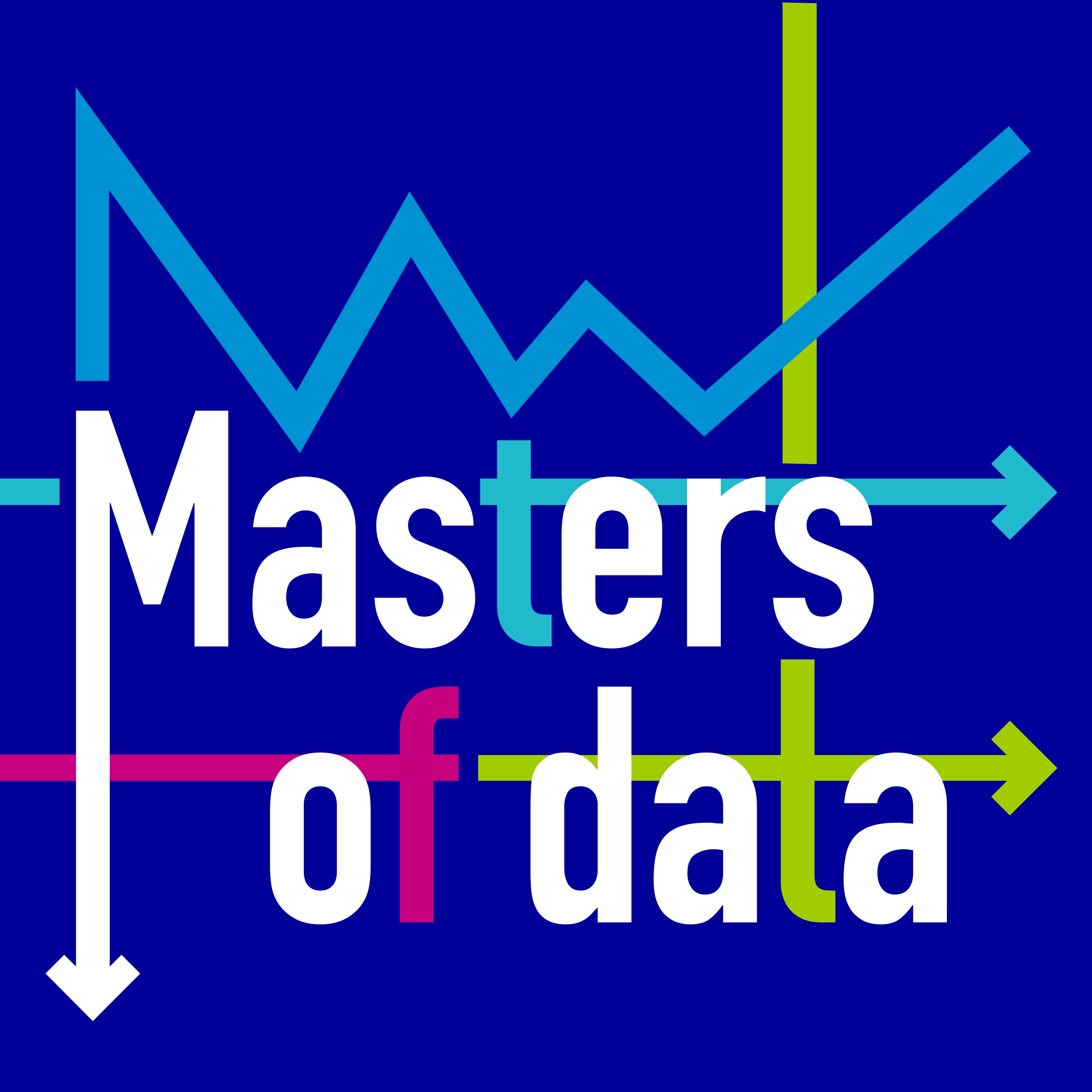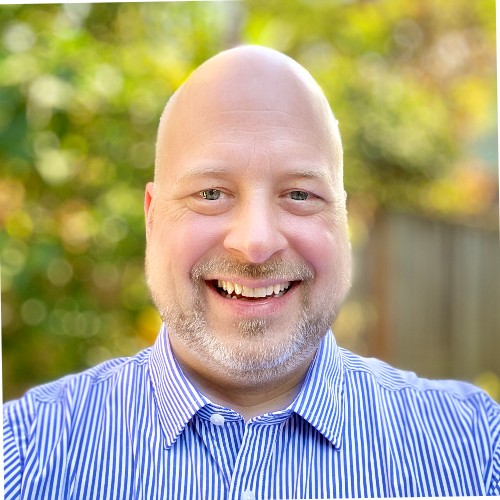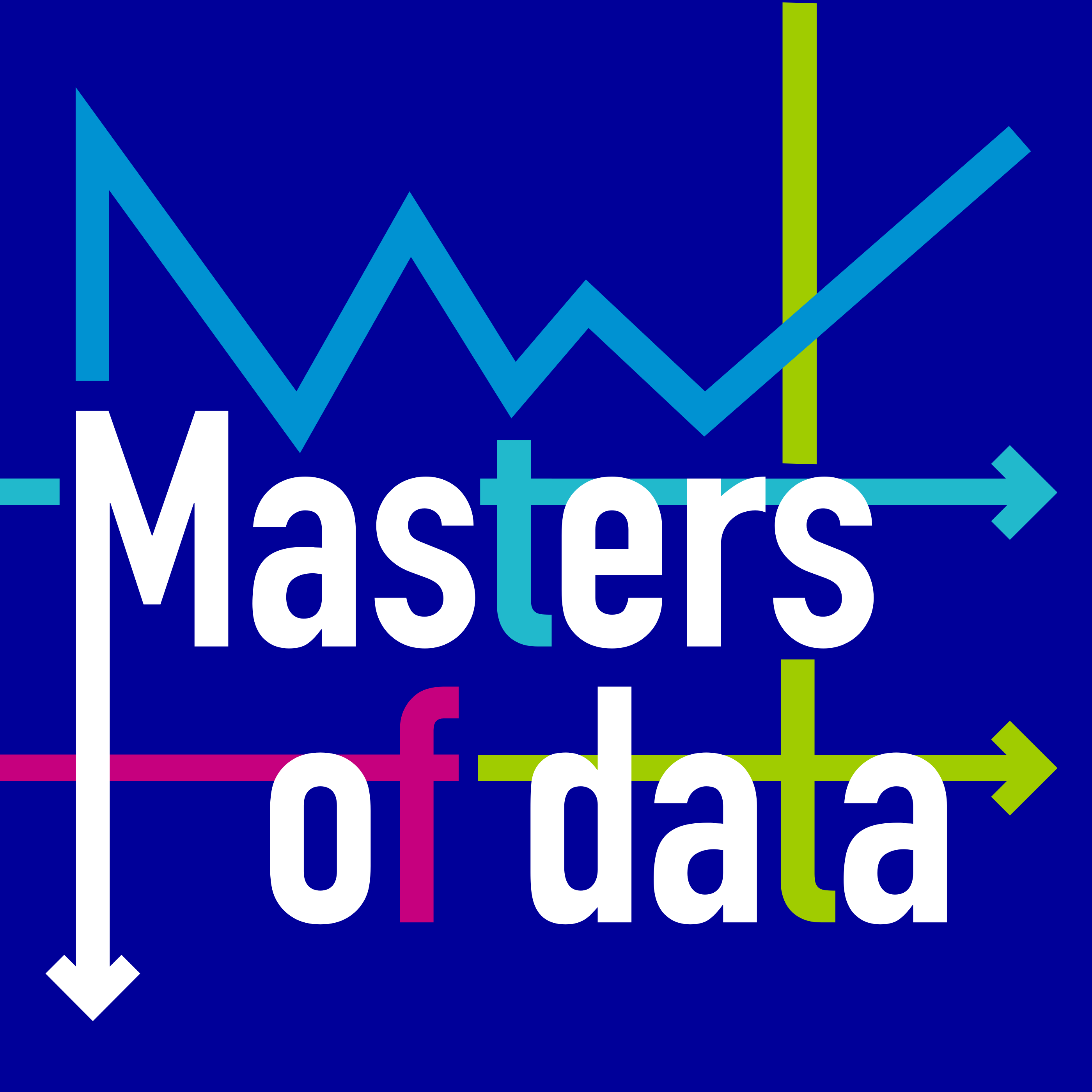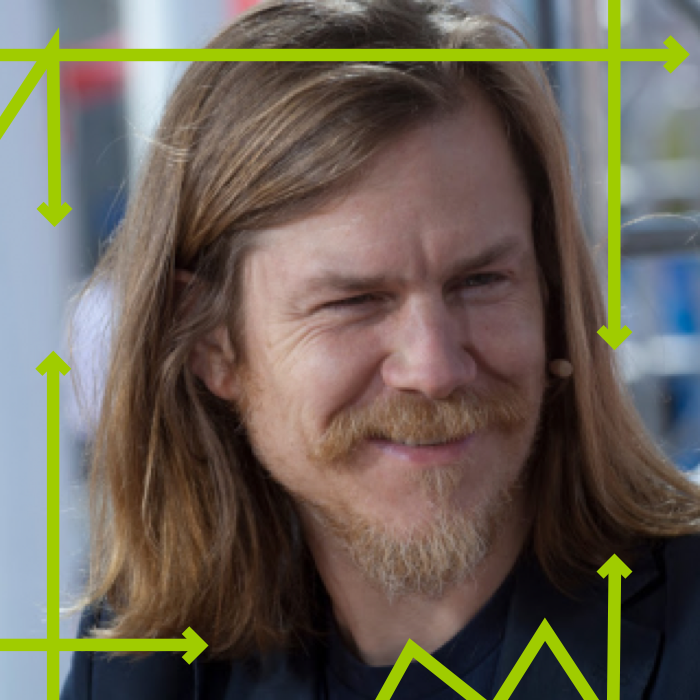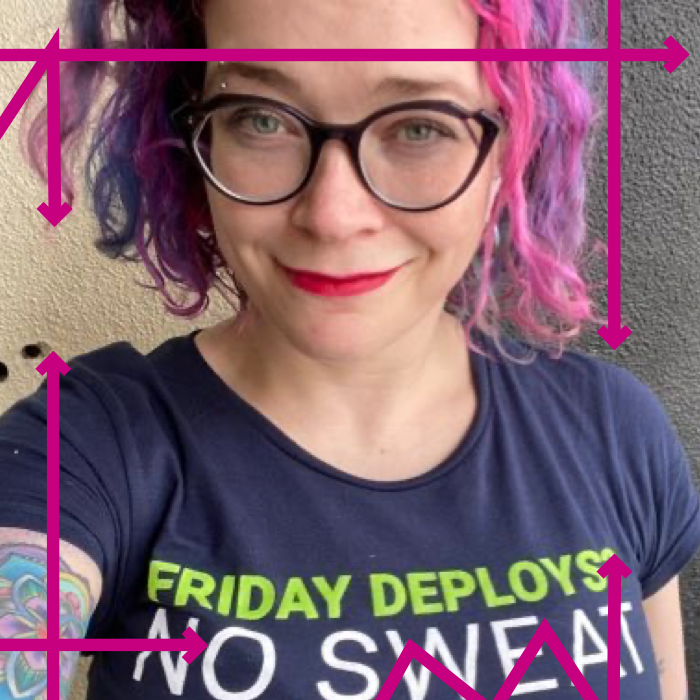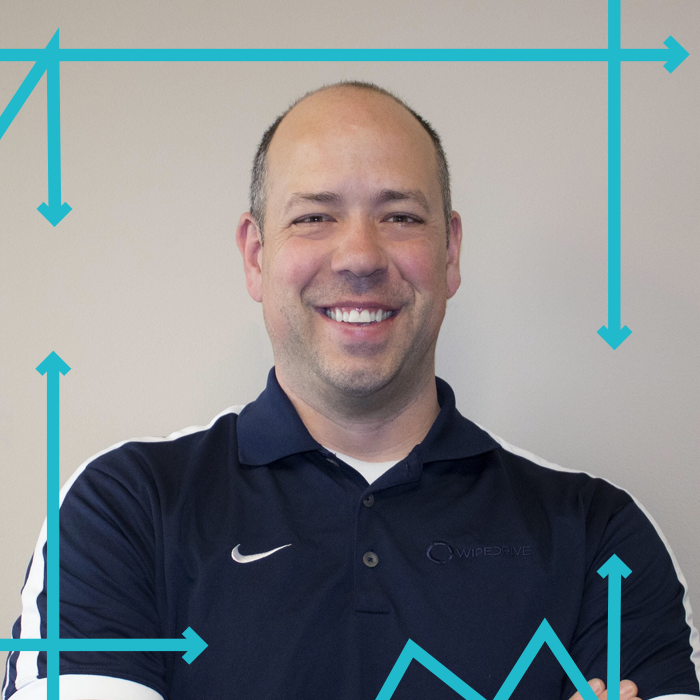Data and Venture Capital (Guest: Jeremy Kaufmann)
- 0.5
- 1
- 1.25
- 1.5
- 1.75
- 2
Ben: Welcome to the Masters of Data podcast, the podcast where we bring the human to data. In this episode we talked to Jeremy Kaufman, a principle at Scale Venture Partners. Scale Venture Partners is a venture capital firm that invests primarily in technology companies that are starting to bring in revenue, and they focus on companies doing business on the Internet, in the cloud, on mobile and delivering the product as a service. Scale Venture Partners prides itself on being a data-driven venture capital firm, and we talked to Jeremy about how they leverage data to make better investment decisions and to make their portfolio companies more successful. So without any further ado, let's dig in.
Ben: Welcome everybody to a another episode of the Masters of Data podcast and I'm excited to have Jeremy Kaufman with me here today. He's a principal at Scale Venture Partners. Thanks for spending time with me today, Jeremy.
Jeremy: Thanks so much for having me.
Ben: We're actually in your office here. You guys have got an amazing view of Foster City. I was telling you before, I've got a new appreciation for it. It's a beautiful day and you got a little water out there. So it's a calm place to build the big deals.
Jeremy: Yeah, Foster City is kind of great. It's in the middle of everything. You're not too far from San Francisco, not too far from Sand Hill Road. It is a nice location and no complaints here.
Ben: Yeah, absolutely. We've got a good day to show it off. So like we always do, Jeremy, I'd love to start off to find out more about you. I mean you've definitely got an interesting background. So you kind of start what makes sense, what got you to where you are today? I mean, what drove your interest and how you kinda ended up at a venture capital firm.
Jeremy: Yeah, so I would describe myself as somebody who's always been fascinated by data and I think of data as for me, kind of the search for truth. And I know that's a large statement to make, especially in this era where truth is being questioned on a number of dimensions. But at least for me in my life, I've always been fascinated by how can data help us narrow in on what we call the truth. And kind of over the course of my career, I went to school in economics and public policy. Originally probably one of the few people in the venture capital industry who was choosing between going into venture capital and actually working in a public schools district using data to basically gauge the efficacy of several policy changes.
Jeremy: I was actually going to either come to Scale Venture Partners here in Foster City or go to work with the State of Tennessee in one of their school initiatives.
Ben: Oh, that's really cool. We actually had a guest on end of last year from UC San Diego, Alan Daly who was using data in schools in the education system. So I can definitely see that. What helped you make that decision? What drew you this direction as opposed to being in the school system?
Jeremy: Yeah, I think what's so exciting to me, at least in the technology world is just the magnitude of the shifts going on. So I spend a lot of my time looking at the world of AI, looking in progress in AI. And one of the things that I've come to learn in my career and what I've learned in venture is sometimes it's always super important to bet on the mega trend. And when I think about what are the core trends affecting our lives today, I think some of the progress that we've observed since 2012 with kind of the deep learning revolution has been the most likely thing to affect the world around us at a kind of faster rate than anything else I've ever seen.
Jeremy: So to me, I hope actually one day to go back into the world of public policy. I've always been fascinated by education. I wrote two college papers on kind of thinking about the role of kind of teacher incentive pay, thinking a little bit about lots of different ways to impact school systems. So actually hope to do that one day. And when I first started here, I actually did spend some time thinking about kind of software to help make school systems, parents and teachers all kind of collaborate and work well together.
Ben: That's really interesting. Tell us a little bit more about the Scale Venture Partners. So do you guys have a specialty? Kind of like the stage type of company, what do you guys do?
Jeremy: Yeah, so we like to invest in what we define as business software. So basically software being sold to a business buyer. It could be an enterprise buyer, it could be a vertical buyer, like the construction industry or the trucking industry. And what we're fascinated in is kind of making investments right when there's a product in markets. We're not taking necessarily kind of technical product risk, but what we are taking is kind of business distribution go to market risk. So for us we're investing in the series A or the series B, usually the first or second round after the products and market and has revenue. So for us we are thinking a lot about market size, market trends and kind of what are the most efficient ways for companies to go to market.
Ben: I think I saw someone come in here, but the companies that you guys invested in the people would recognize, I know there's definitely a-
Jeremy: Yeah, so Scale over the years has made a number of interesting SaaS investments from Box to DocuSign to Hubspot. Some of our more recent investments include, Walk Me, JFrog, DataStax, Circle CI. So we've done a lot both on the business application side and the infrastructure side.
Jeremy: Those are some big names. That's cool.
Ben: So yes, the fund's been around for 20-25 years or so, and in this day and age I think we're proud to be kind of very focused this day and age. I think it's important to be a thesis based investor to narrowly define what you want to focus on and explicitly say to entrepreneurs, "This is where we've been spending our time. We're knowledgeable about your space," and not try to do everything at once.
Ben: And what really attracted me to Scale was Scale is a firm that's very focused. It puts data first. We'll hopefully talk a little bit later in this podcast about how we're using data here. But as someone who kind of came up in the data world previously spent time as a data scientist in the healthcare world, worked at Salesforce, kind of putting together reports and insights, I was always drawn to a firm that kind of put data first and was very focused.
Ben: Well that's cool. I had never heard the term thesis based before. I liked that. So really just having a very clear focus for a venture capital firm. Because I think, one particularly people who are not as familiar with the whole VC funding process. I mean part of what you guys bring to the table is you're bringing knowledge about a particularly industry and process that maybe a founder doesn't have.
Jeremy: Yeah. When I first started, I thought to myself, when I was in my first or second year of this job, I thought, "Oh my God, this is so hard. We're being asked to context switch all the time. Kind of jumping from AI to developer tooling to understanding the construction industry." And then I talked to my peers at other firms who are looking at consumer and healthcare and I'm thinking to myself, "Wow, it's just very hard and super important, so your self so you can have a clear thesis and kind of narrowly define the trends that you want to focus on. And then just to be helpful to the entrepreneur.
Jeremy: I think most people who've engaged with Scale will say when they've met with Scale, "Oh they knew our market." We might not be investing in every single market, but the markets we're interested in, we definitely take our time to get up to speed.
Ben: It makes a lot of sense. You had mentioned that. When we first got in touch, we talked a little bit about some of the things you guys were doing with data here. I think particularly that was something you guys call Scale Studio. So talk to me a little bit more about that. I like the idea that you guys are so data focused. So tell me how you do that. How you use the data.
Jeremy: So I think many people over the years have talked about the role of data in venture capital, how the two can be linked together. Are they polar opposites or are they more two things that should work in tandem? And what we found is that at Scale Studio is basically SaaS metrics that we make available to entrepreneurs and the broader community that help entrepreneurs compare their rate of revenue growth and churn and sales efficiency and cash burn to 300 other SaaS businesses over the course of 20 years.
Jeremy: Because what we've found is that oftentimes entrepreneurs are looking to investors to be able to answer the question: "So how am I doing? How can I be helpful? Tell me about what do you think of my financial plan?" And I think a lot of investors operate by anecdote. So they say, "I'm on the board of nine other companies and your plan is one of the best I've seen." And their mental set is nine companies.
Jeremy: But what we've said at Scale is that we've been investing in SaaS for 15 years. And what we were able to do is basically put a bunch of metrics together, what we Scale Studio and now when an entrepreneur asks the question, how am I doing, we can respond with your current rate of growth is between the 50th percentile and the 75th percentile. But if you hit your plan for the next two or three quarters, you will be at the 80th percentile.
Jeremy: And we think providing that level of clarity is super important to entrepreneurs. And I think one of the things that investors might have done as a disservice to the broader tech community is that investors love to introduce new metrics and complicate things. And one of the best ways to become known in venture is to actually introduce a new or a more complicated metric. And what we did at Scale is over the last year or two and we've said this world of SaaS metrics has just gotten crazy out there. One of my partners makes the analogy that if you walk into the emergency room, when the doctor asks, "What's your blood pressure?" The answer is a number. It's not how do you define blood pressure.
Jeremy: But when you're in a board meeting, if someone says I'm growing at 70%, oftentimes is that year over year growth is that quarter over quarter growth. So what we've done is we very explicitly built an app and I'm proud that yes, venture capitalists can build software, not just a PowerPoint deck that we passed along, but actually built an application that we showed entrepreneurs and we say we've picked out the four metrics that matter most. We call the four vital signs of SaaS and we think that this is the way that we can best help our entrepreneurs.
Ben: That is really interesting. I think one thing in particular, I mean a lot of founders will tend to be more technical and may not come from a business background or have that kind of MBA background. I mean sometimes you get it, but there's a lot of times you don't. So I can see how bringing that kind of-
Jeremy: Yeah, and we think that the way that this data is to help founders shouldn't conflict with anything they're doing before and we don't think that there's a universal answer or universal truth. What founders want to know is they want to know, "Okay, I'm selling to small businesses. So my churn rate is probably going to be higher than other businesses selling to large enterprises." So they don't want to know how does my churn rate in general compare to all businesses. They want to know compared to the 10 or 20 most comparable companies. And what our benchmarking tool allows one to do is not only talk about averages or medians with a sample size of 300 companies, what it says is, "Okay, I'm going to select the 20 companies that I think are most similar to myself and then be able to kind of extract insight from that."
Ben: You basically got enough, let's call it metadata about all these different companies where you essentially, it's almost like you're finding the similar DNA, like "Okay, what's a company that looks the most like me?
Jeremy: Exactly. Yeah. The benchmarks are actually based on 20 years of SaaS data across 300 different SaaS businesses. So what we've done is we say we've now scaled the VC concept from the seven board meetings that they remember in the back of their mind to "Wow, now I have 300 companies to actually compare this to."
Ben: That brings up an interesting question cause this, this actually comes up quite a bit on the podcast where we talked about how, it's data versus intuition. Because I mean there is something to be said for intuition because a lot of times the investors that are sitting on these boards, very often they've actually been around the block, they might have started their own company or something like that. So how do you see your partners at Scale Ventures and those that are on the boards? How do they balance that? They kind of start from the data and say, "Okay, well let me then place my experience within the context of what I just showed you here or how?
Jeremy: Totally, I think people have been talking about the conflict between intuition and data for for decades. I think the rise of Nate Silver in the political sphere has amplified the conversation with data and politicians. I think the venture capital community is thinking about the same issues. I mean in the old world venture was a game of intuition. And we've seen newer models come up with social capital. Their old capital', a service model and firms like Scale who are trying to move the needle in what we hope our entrepreneur friendly and productive ways.
Jeremy: But I don't think they necessarily conflict. So what I'd say with our entrepreneurs is they're running their own AB tests and they're using their intuition to derive a hypothesis or a thesis on how they think they can affect change, how they can verticalize, how they can improve sales efficiency. And those are tactics. And what we say to our entrepreneurs is we've been on the boards of four other companies that have had to go up market from an ASP of 5K to 20K. Here are their learnings. And that's fairly qualitative and that's based on a smaller sample set.
Jeremy: And that's super important, I think we've shown that well in the case of Box kind of adding enterprise features, going up market. Docusign, kind of leading the way with that freemium business model. So I think business model innovation is a test and learn and what you can learn from previous examples, great. But I do think when companies are setting a financial plan, which is that higher level metric, and they're saying, "I'm at $11 million in revenue today and my plan calls me to go to $20 million next year." What they're going to do to the board is they're going to ask, "is that good enough?"
Jeremy: And what we hope to do at Scale is we're not going to respond with, "Oh well I think that's good enough." What we're gonna respond with is "Add a run rate of $11 million, a growth rate of 83% that would place you slightly above the 50th percentile for a company at that stage. And therefore you're somewhere between the 50th percentile and the 75th percentile."
Jeremy: And that way the entrepreneur can choose, maybe I should spend a little bit more on sales and marketing to drive that growth rate up. Or maybe the converse is true, which is maybe I should scale back some of my sales efforts focused in the lower segment. But I think kind of AB testing and intuition is fundamentally part of what a startup is. A startup is essentially an AB test to understand if a market exists. And growth is the way you measure the success of that.
Jeremy: So I think Paul Graham's statement of the point of a startup is to show growth is very true. What Scale Studio does is it allows one to quantify growth and put it in context that entrepreneurs can understand.
Ben: That makes sense. And I don't know if this next question will make sense, but do you feel like from a venture capital perspective, do you think of this data as kind of a competitive advantage as a venture capital firm, or do you see this as a tool to help your your portfolio companies be more successful? Or is it both?
Jeremy: It's both. It's absolutely both. And the backstory of Scale Studio is we've actually had the tool and use it internally for the last two, three years. And what we decided was we decided to open source the tool just earlier this year in February and say to the broader tech community at large, "Okay, I'm a startup sitting in New York and I might not have met with the team at Scale Venture Partners, but if I input just four or five data points, now Scale Studio will spit out a health score or a wellness score."
Jeremy: So we hope that that's providing information that's net additive to the company. And then of course we want it to be net additive to us. We hope that Scale Studio and Scale as a brand will be kind of seen as a firm where kind of entrepreneurs seek truth and we help show that through numbers. And then yes, when we make investment decisions we're going to use Scale Studio and we hope that our portfolio companies use Scale Studio and our data to kind of make better decisions.
Ben: I actually didn't realize that you guys had open sourced it. That's pretty cool. And I guess I can see because the part of the thing, particularly in the kind of knowledge economy we have today is you're establishing yourselves as subject matter experts in that space too. It's a form of branding I would guess.
Jeremy: Yeah, absolutely. I think at our stage, I mean at Scale we're investing that series A, that series B, people are asking, "So what can you bring to the table?" And our answer is "Yes, we are going to bring kind of knowledge and experience with 15 to 20 years of SaaS and cloud investing. Yes, we are going to bring connections and yes we are going to bring help with recruiting, but what we're also going to bring is we're going to bring data, we're going to try to bring truth." And I think people respect that. And I think that that is a very... Sometimes people laugh about what is VC value add. This is a very concrete way of kind of quantifying that.
Ben: I like that. I like it. I think it pretty cool. So I guess, moving a little bit beyond that, because I think what you guys are doing there is really cool. So one of the things I've enjoyed talking with people like yourself at venture capital firms like we we talked about a little earlier is that you guys have your finger on a lot of what's going on. So talk to me a little bit, where are you seeing some of the new innovation that you find interesting particularly related to some of that stuff we talked on the podcast? AI machine learning, what are you seeing?
Jeremy: So I would say, I mean AI and machine learning is obviously one of the most exciting areas and area where I'm personally focused on today. When I started in venture capital in 2015 an interesting stat was of the kind of 10 deals that Scale Venture Partners did a year, maybe one or two of those investments had some form of AI core to the product. But in 2018 all of a sudden it's no longer 10% it's 40 or 50%.
Jeremy: So we are very focused on AI investing at Scale. Over the past two or three years probably made 10 or 11 investments in this space. Companies like Forter, which is detecting credit card fraud. Companies like Socure, which is helping banks manage identity through machine learning. And then we've been investing in the world of natural language processing with companies like Textio in the augmented writing space and computer vision with two investments in robotics like Locus Robotics and Soft Robotics.
Jeremy: So when you say to me today, what am I excited about? I'd say in the world of AI, there's three markets that I'm definitely spending my time in. The first being the world of conversational AI. The second being the increasing ubiquity of the camera. Cheaper cameras in more places providing more data to newer kind of players than ever before. And the third being the world of software to help machine learning engineers more efficiently build, deploy and train machine learning models. So this is core to kind of what I do every day.
Ben: Yeah, it was an interesting. Let's delve a little bit into each one of those. So conversational AI, assuming you're talking about natural language processing kind of area the chat bots would be in. What are some of the things that you're seeing happening right now in that space?
Jeremy: Yeah, I think conversational AI is a really interesting space. Stepping back in 2015 the chatter was all about chatbots and it was chatbots are going to be the next big thing. Chatbots are the next UI. And I think that hype quickly faded because turns out that chatbots were fairly inaccurate. And sometimes people don't actually want to talk to a bot. So why has this kind of come back in the year 2019 as an area where we're interested in?
Jeremy: I think a couple of reasons. I think one because fundamentally there's been an explosion of messaging and voice endpoints. There's more Alexas than ever in the home. I think people are just more comfortable using their voice to interact with technology. I think second, there's just been a lot of improvements in kind of automated speech to text and text to speech technology. Some of the most interesting progress in the field of AI has happened in NLP in the last year, and I'm happy to talk more about that. And then the third has just been the kind of understanding that rather than a chat bot generating all answers, it's better to constrain. So kind of pre-generate answers rather than just give it unconstrained. I think we saw with Tay for example, the Microsoft Tay was an unconstrained chatbot and it learned from users to curse and it learned all sorts of bad things.
Jeremy: And I think there's this recognition that constraining the problem matters. But why am I excited about NLP? Just in the last year, I think NLP has had a breakout moment tantamount to what we've seen with ImageNet in the world of computer vision just back in 2012 and 2013. what we've seen now is this idea of pre-training language models. This is a new concept. Traditionally the field of NLP and deep learning has been tough in the field of NLP because typically the corpus of data hasn't been enough.
Jeremy: So you've seen these new techniques just in the last year, the Google BERT paper, the ELMO technique. So all of a sudden you are pre-training language models on a large corpus of data, so you no longer have the same data limitations. And as a result of this, the progress in NLP in the last, call it 365 days, has been the super dramatic. There's a measure that machine learning engineers use called the GLUE, which is the state of the art in NLP. It's actually increased from 69 to 88 in just 13 months and the human baseline is actually 87. so this is the rate of progress in NLP, and this rate has been just the slope and the growth in the last year has been super exciting.
Jeremy: So we are certainly thinking about what this means in the discipline, but as an investor we like to start with external trends to the environment and then take that insight, which is, wow, BURT and ELMO are making improvements in NLP, I'm thinking what insights do we glean from that and how can we apply that to the market of technology companies.
Ben: Yeah, that makes sense. So using NLP as a tool to solve specific business problems? [crosstalk 00:22:56] Where do you think are some ways that NLP is going to be used that people might not expect? Because again, like you said, chat bots is the one that always comes to mind. But you think there's some ways that [crosstalk 00:23:09] is going to come out-
Jeremy: What I'm thinking a lot about is I'm thinking about voice and points in logical interfaces that make sense to the user experience. So what I mean by that is examples of, for example, you show up to a fast food restaurant and today there's a human being who takes your order. Or you show up to a department store and you ask a human being where can I find the soap? So the idea of language and voice as a way to kind of understand human requests, get rid of the background noise and then process from language to an action. I mean I would say in the next five to 10 years, I fully expect that if you drive up to a McDonald's drive thru, there might not be a person there because voice has been able to more accurately than ever capture that order and translate it into an order to prepare food.
Jeremy: I mean, the second area that I'm excited about is the world of medical notation and notetaking. I mean, you walk into a doctor's office today and there's a number of setups you could have. You could have a doctor on their own, you could have a doctor tag team with a medical scribe whose job is to follow the doctor around and just take notes. And you have doctors who spend their office appointments typing in to electronic health records with their back to the patient, which certainly doesn't help improve the mood or the tone or just the feeling of the meeting. But imagine if the doctor's notes could be captured via voice and kind of go from voice into these electronic health record without the intermediary of the scribe or the intermediary of the keyboard or the mouse.
Jeremy: Those are to me, two pretty exciting applications that we're interested in.
Ben: That's super interesting. The second thing you mentioned was camera technology. I think you and I touched base before, it's more than just simple object recognition. What are you thinking there this is interesting to you?
Jeremy: I mean the broad trend here is exciting. You have cameras in more places than ever before. The fundamental reason is just cameras are cheaper than ever before. So you have $100, $150 commodity cameras in places they've never been like a construction work site or like a student campus, like a campus center. And one of the areas that I'm thinking about is the world of physical security.
Jeremy: So I think the last 10-15 years have been a huge trend in the cybersecurity world. And what I'm thinking about today is physical security. So if I am a school or I am a sports stadium or I am a corporate office building, can I use facial recognition to understand who's coming into my office? Can I program what I would call scene detection to send an alert if an action is happening that's irregular. So for example, imagine in your home, you have a camera pointed at your pool and you have a small child and God forbid the child falls into the pool and you want to make sure that that doesn't happen. Imagine you're pointing a camera at the pool and the camera could be trained to recognize the action of somebody stumbling into the pool that shouldn't be there.
Jeremy: So that's beyond just simple, here's a person, but kind of tagging an action to a given location. And understanding the implications of that. And that's a really hard problem to solve. I'm not saying that that solved today, but it's an area that I'm interested in because I'm seeing startups in the field of weapon detection, not just, "Oh, a gun exists or I see a gun, but oh that person is pointing a gun that shouldn't be happening." Or the child fell into the pool. So it's not that there's just a human being in the pool, it's that there's a child, an action that was recognized.
Jeremy: So I'm very interested in startups in this world of physical security. I'm interested in cameras and newer places. We've been doing a deep dive in the construction industry, looking at what insights construction managers and supervisors can glean with new cameras pointed on the site with all sorts of interesting insights.
Jeremy: And then even when you think about the office building today, imagine the ability to understand via camera what desks are unoccupied, what conference room is unoccupied, how do you truly understand physical space at a level that you've never been able to do so before? So I think that's a really interesting trend.
Ben: That all sounds really interesting. And the last thing that you mentioned is software for machine learning engineers. So I've had a couple of conversations with other people about that. It seems to be part of the trend is now the machine learning has gone from what is often the research project to becoming production systems, they're running into the same problems we've run in with previous technology changes.
Jeremy: Absolutely. So I mean Scale, I think it did a great job in the last 10 years of investing in some of the market leading developer service companies, companies like Circle CI, helping engineers go through the CI process. Companies like Chef automate the deployment of code. Companies like JFrog and binary repository management. So we did a lot in the software to help engineers manage the deployment process of kind of building software. I think the equivalent in machine learning is, well now that we have kind of data scientists who might have an academic background previously so they understand the machine learning, but they might not be exposed to enterprise production workflows. So they're often dealing with problems like how do I hand off a model from kind of person A to person B? Or how do I get my model into production?
Jeremy: And today what you have is you have the market leading companies like Uber and Airbnb who built tools in house. Like Uber, Michelangelo or Airbnb, Bighead. These were tools to help these businesses deploy their machine learning models. Deploy them, test them, monitor for model drift. And what we're seeing in the broader world at large is now companies that you might not have thought of as a machine learning company like Jet Blue or State Farm or companies like that. Now all of a sudden, Mark Andreessen said in 2010, 2011 that software is eating the world and all of a sudden now everyone's a software company.
Jeremy: I think what's going to happen in the next five to 10 years is everyone's going to be machine learning company, and not everyone can afford those million plus dollar engineers. So they're going to want to buy products that help them get those machine learning models into production, help them select the best version of the model to use. So I think this is a very promising space. It's very early. I think there's a number of interesting challenges to think about. How do you think about potentially competition from open source vendors? How do you think about a bottoms up approach that really kind of gets the developer on board so you're not just selling tops down to a supervisor or a manager? So I think there's a lot of interesting dynamics there, but that is definitely a space that I'm excited about.
Ben: The thing I was thinking when you were saying that, so if software's eating the world, what is machine learning eating?
Jeremy: I don't have anything witty to say there. Apologies.
Ben: I gave you a chance to do the next quote.
Jeremy: And I failed.
Ben: We'll come back and try it again later. Again, this is why I love talking to people like yourself, Jeremy, because I mean there's this stuff that you're talking about here. It's just out of the realm of science fiction. I mean, this is really interesting stuff that's going on.
Jeremy: Yeah. And I think what I'll say to the science fiction, how true is this, is this over-hyped comment, which is that I think it's important to recognize that yes, there's some fields and some sub-disciplines that have been overhyped. So no, we don't believe that autonomous driving level four and level five is going to be fully solved in the next four to five years. We don't believe that.
Jeremy: But what we do believe is that some of the recent progress in computer vision, the recent breakthrough with ELMOs and natural language processing are going to lead to some really category defining AI first companies. And we think it's probably the most exciting area in the technology world today and it's a space that we're devoting kind of lots and lots of our resources to.
Jeremy: So yes, not everything that I mentioned today is happening in the next four or five years. And it's important to say that in the past if you go back to the Dartmouth conference on AI in the 1950s a lot of smart people there got it wildly wrong. What the timeline for success in AI looks like. So I think what we think about everyday when we meet companies and we meet startups is are your objectives feasible in the next kind of three to five years? Do we think the technology is there? Do we recognize that there's a big difference, for example, between summarization, which is very hard for machines to do versus question and answering. So yes, we think a lot about kind of how real is the tech and we don't buy into the overhype, but we are long on technology, we are long on machine learning and we think that this is the future.
Ben: Well, I think that's a good point to wrap it up on it. Jeremy, thank you for your time. I mean this was super interesting. I think what you guys are doing here is pretty amazing and I look forward to touching base with you again later and see how things are going.
Jeremy: Thank you so much for having me on.
Ben: Absolutely. And thanks everybody who's listening to the podcast and as always find us, rate us, so that other people can find us, because that is the best way for them to find us, and when you rate it on your favorite podcasting app. And look forward to the next episode in your feed. Take care. Everyone.
Speaker 3: Masters of Data is brought to you by Sumo Logic. Sumo logic is a cloud native machine data analytics platform, delivering real time continuous intelligence as a service to build, run and secure modern applications. Sumo Logic empowers the people who power modern business. For more information, go to sumologic.Com. For more on Masters of Data, go to mastersofdata.com and subscribe and spread the word by rating us on iTunes or your favorite podcast app.
DESCRIPTION
In this episode, we talk to Jeremy Kaufmann, Principal at Scale Venture Partners. Scale Venture Partners is a venture capital firm that invests primarily in technology companies that are starting to bring in revenue, and they focus on companies doing business on the Internet, in the cloud, on mobile, and delivering their product as a service. Scale Venture Partners prides itself on being a data driver Venture Capital firm, and we talked to Jeremy about how they leverage data to make better investment decisions and make their portfolio companies more successful.
